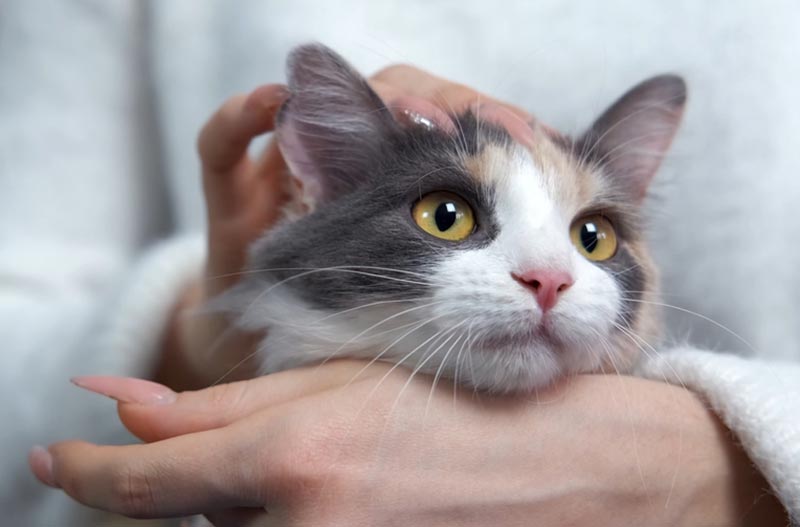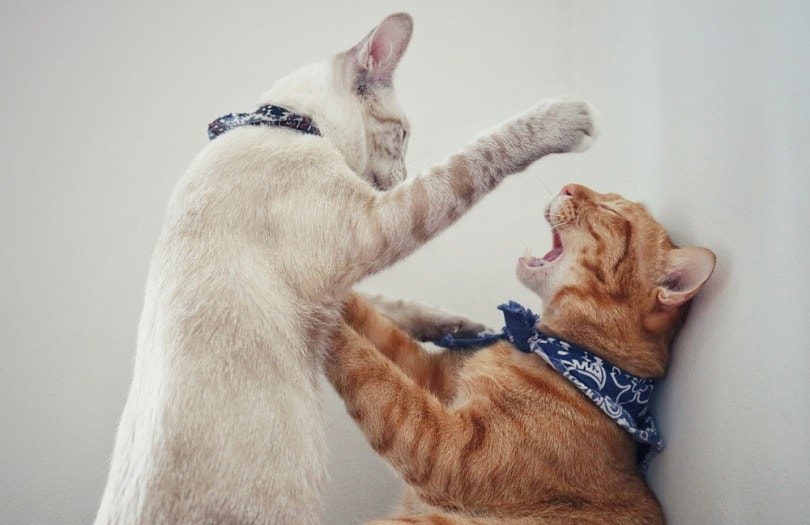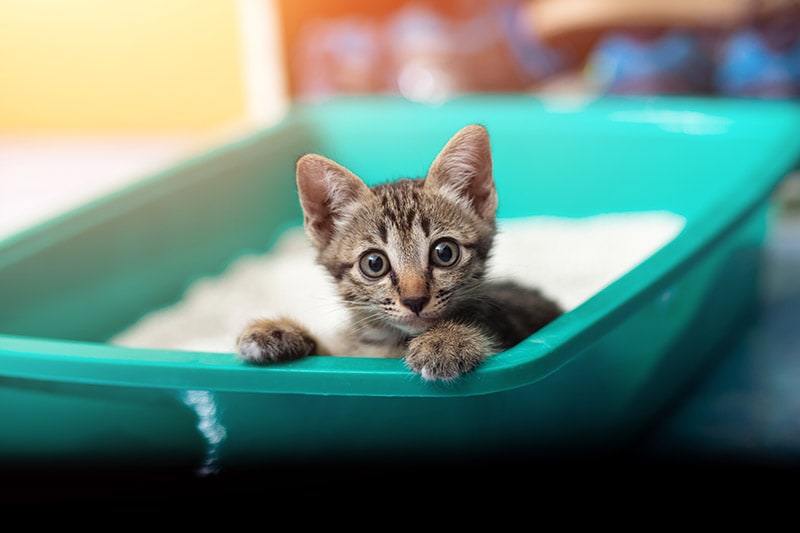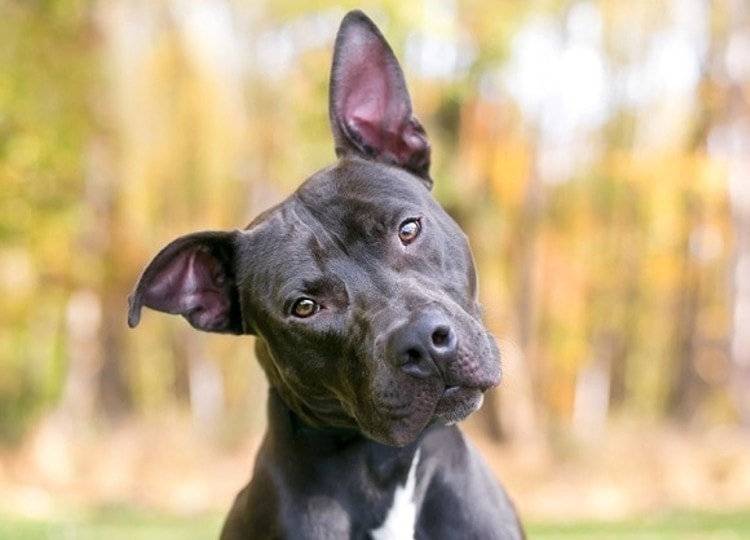VET APPROVED

The information is current and up-to-date in accordance with the latest veterinarian research.
Learn more »Click to Skip Ahead
Cats purr for many reasons, not just when interacting with humans. While cats often purr in our presence, they also purr when communicating with other felines. Traditionally, purring has been seen as a sign of contentment, but research shows that cats may also purr when they’re stressed, in pain, or near the end of life.
Even wild cats that have no contact with humans purr, making it clear that purring isn’t just for our benefit, it’s an instinctive form of feline communication.

The 3 Different Reasons Why Cats Purr
Cats purr for different reasons. In a lab setting, scientists can measure the duration of the purr and the frequency of it. While you may not be able to tell these differences in your cat’s purr, scientists can use this slight difference to identify the reasons cat purrs.
1. Communication with Humans
Indeed, some purrs and meows are solely for communicating with people. We find these purrs only in domesticated cats and only when they are around people. Low-pitch purrs can sometimes have a high frequency component that seems to mimic a baby’s cry. Unlike purring used for other purposes, these purrs tend to be more persistent and may vary in intensity depending on the cat’s needs. Many cats develop a unique purring pattern when seeking attention, food, or comfort, reinforcing their bond with their human caregivers.

2. Communication Between Mother and Kittens
From the moment they are born, kittens rely on purring as a way to communicate with their mother. Newborn kittens are blind and deaf, but they can feel the vibrations of their mother’s purr, which helps them locate her for warmth and nursing. In turn, kittens begin to purr when they are just a few days old, signaling contentment and encouraging their mother to continue caring for them.
This form of communication strengthens the bond between the mother cat and her litter. It also serves as a subtle reassurance that the kittens are safe and well. Since purring can have a calming effect, it may help keep both the mother and her kittens relaxed, especially in the vulnerable early weeks of life.
3. When Signaling They’re Not a Threat
Cats also purr when they are stressed or in pain. Cats often purr when they are relaxed and content, but it seems that purring also works as stress relief. Therefore, cats may purr even when they aren’t content.
However, this type of purring is less common. We do know that cats often purr when in pain, but this may have more to do with the above reason than due to anxiety. It’s hard to tell, and we can’t exactly ask our felines.
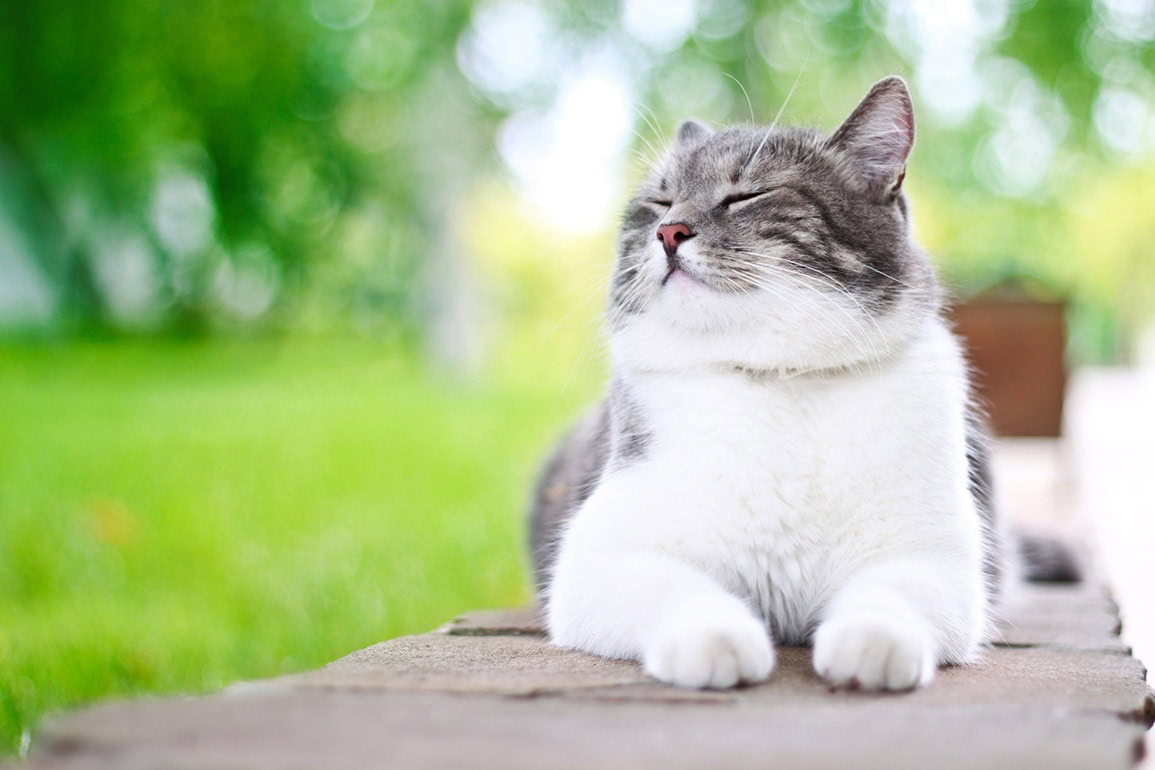

Why Does My Cat Only Purr for Me?
Some cats purr all the time. Others don’t purr much at all. Many cats may be heavily attached to one person. It isn’t odd for cats to pick their favorite person out of the family and attach mostly to them. This does depend a bit on the breed—certain cat breeds are more likely to be one-person cats than others. (And the same can be said for dog breeds.)
In these cases, you may only hear your cat purr when they are with “their” person. However, while these cats may rarely purr for others, it is still possible.
You shouldn’t be worried if your cat only purrs for one person, two people, or not at all. A cat’s temperament will determine when they are likely to purr and when they are not. Some cats may purr more often than others.
Do Cats Purr Because They Like You?
Cats can purr for many different reasons. Often, they purr because of contentment and so some cats will purr because they like you. However, just because a cat likes you doesn’t mean it will always purr. Sometimes, cats may not purr very much, including with people they like being around. However, cats are likely not to purr if they are around someone they don’t like.
Just because a cat purrs while on your lap doesn’t necessarily mean they are content (though it often does). Cats can also purr when anxious. Purring is a natural source of anxiety relief, so cats will purr when stressed or in pain.
Contentment and friendship are one of the reasons cats purr. However, it is not the only reason.
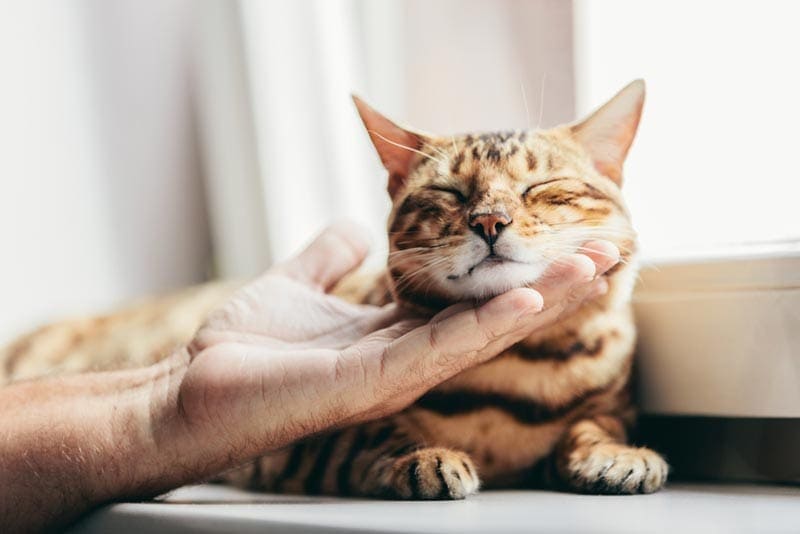
Why Does My Cat Purr When I Don’t Pet Her?
Many people mistakenly believe that cats purr only when they are being petted. However, this isn’t the only time that cats purr. Cats also purr when they want something from you, typically food, but also attention. Of course, some cats are the opposite and hardly ever purr—even when being petted. It all depends on the cat’s personality and temperament.
Cats often purr when stressed as purring is a form of natural stress relief. Cats do it when they feel relaxed and when they want to feel relaxed. Therefore, if your cat is purring but doesn’t seem content, then it may indicate that something is wrong.
As discussed earlier, cats will also sometimes purr when injured. Studies have found that purring may promote healing in some way. The purr is the same frequency used for treating bone growth, pain, and muscle strains in humans. Therefore, it may work for cats in the same way. Of course, we don’t know this for sure, but it is a good theory.


Conclusion
Cats purr for many different reasons. We know cats purr when humans are not around, and that undomesticated cat species purr too. Therefore, it doesn’t seem to be only for a human’s benefit. Cats purr when they are content, even when humans are not around. They may also purr to promote healing, as it isn’t odd for a cat to purr when sick or hurt.
Not many studies have been done on a cat’s purr. However, there are more and more studies coming out every year.
Featured Image Credit: Gadzick, Shutterstock
